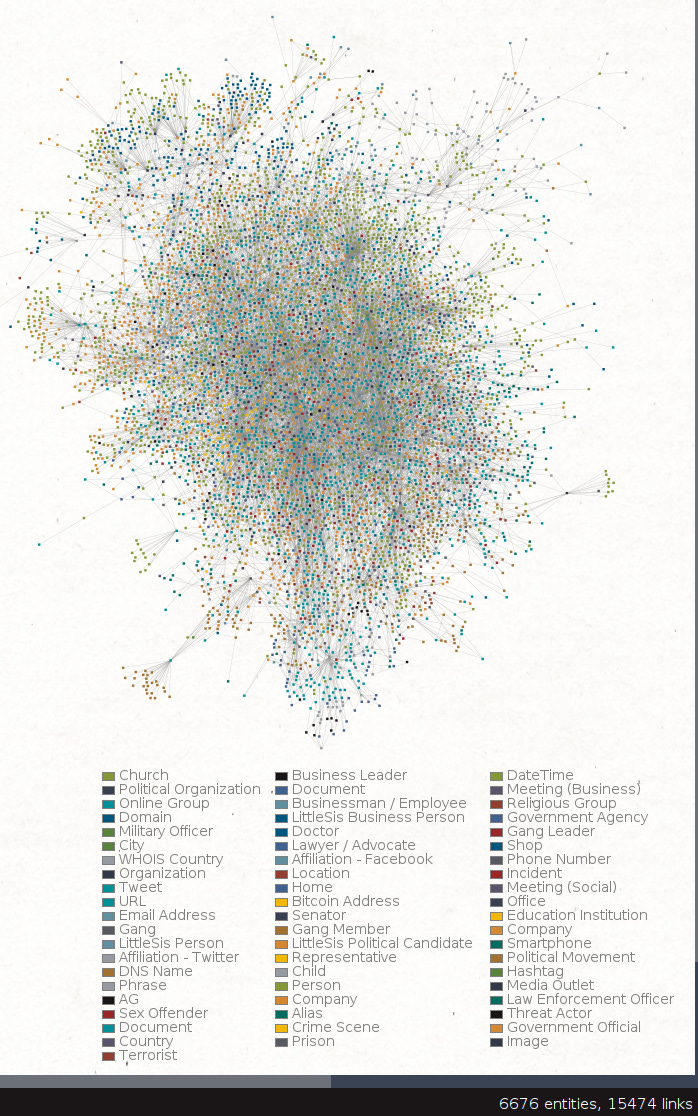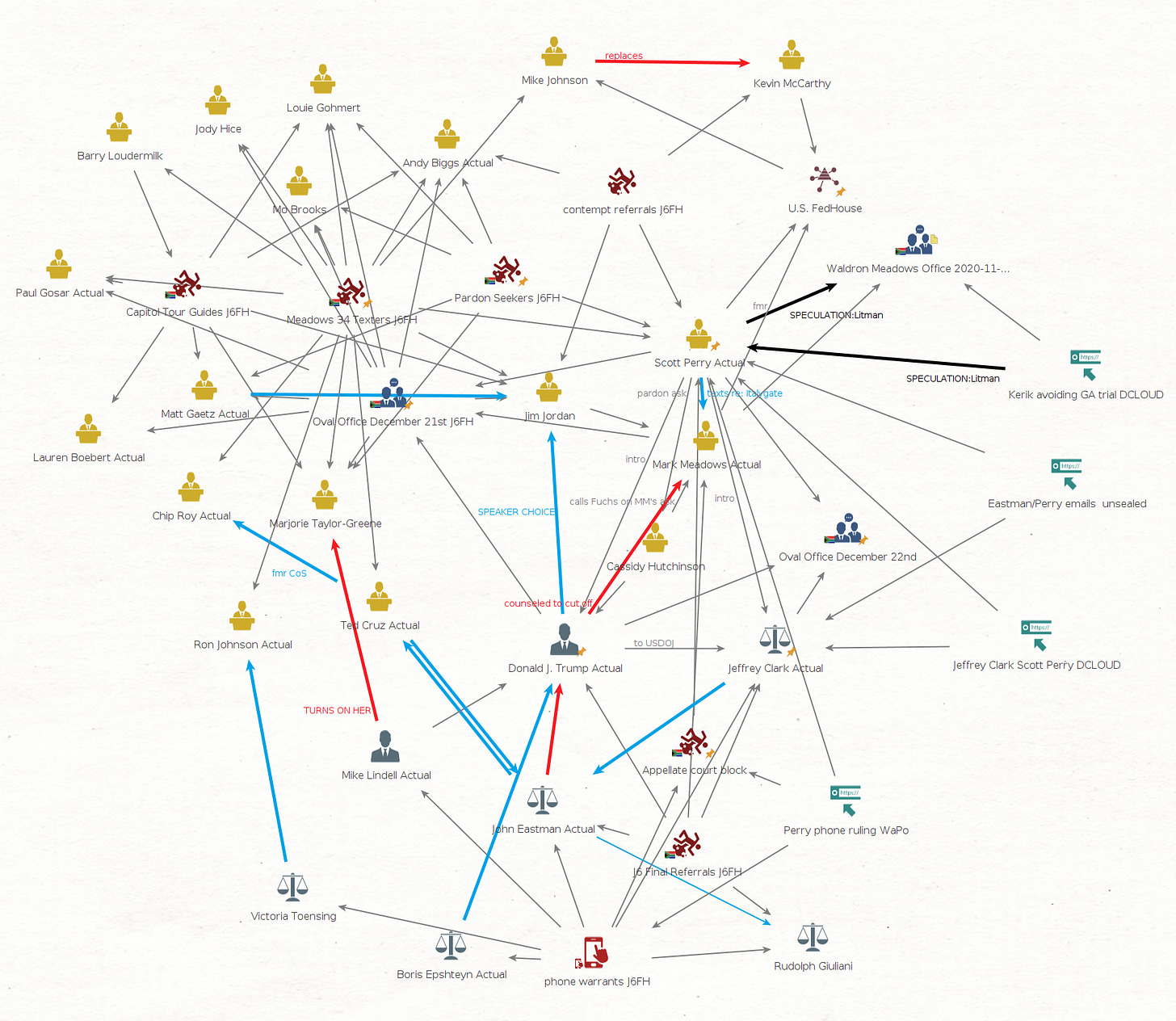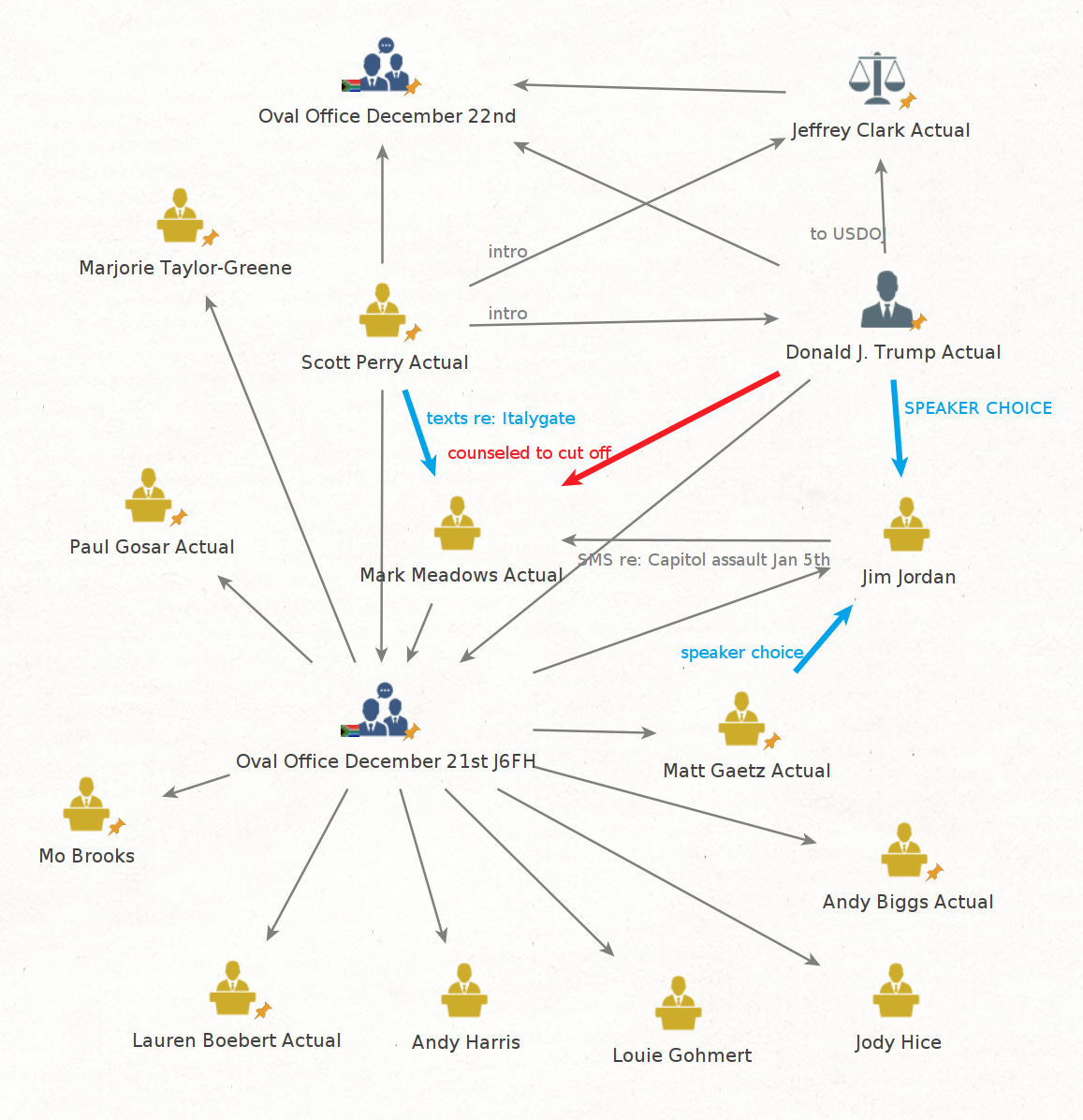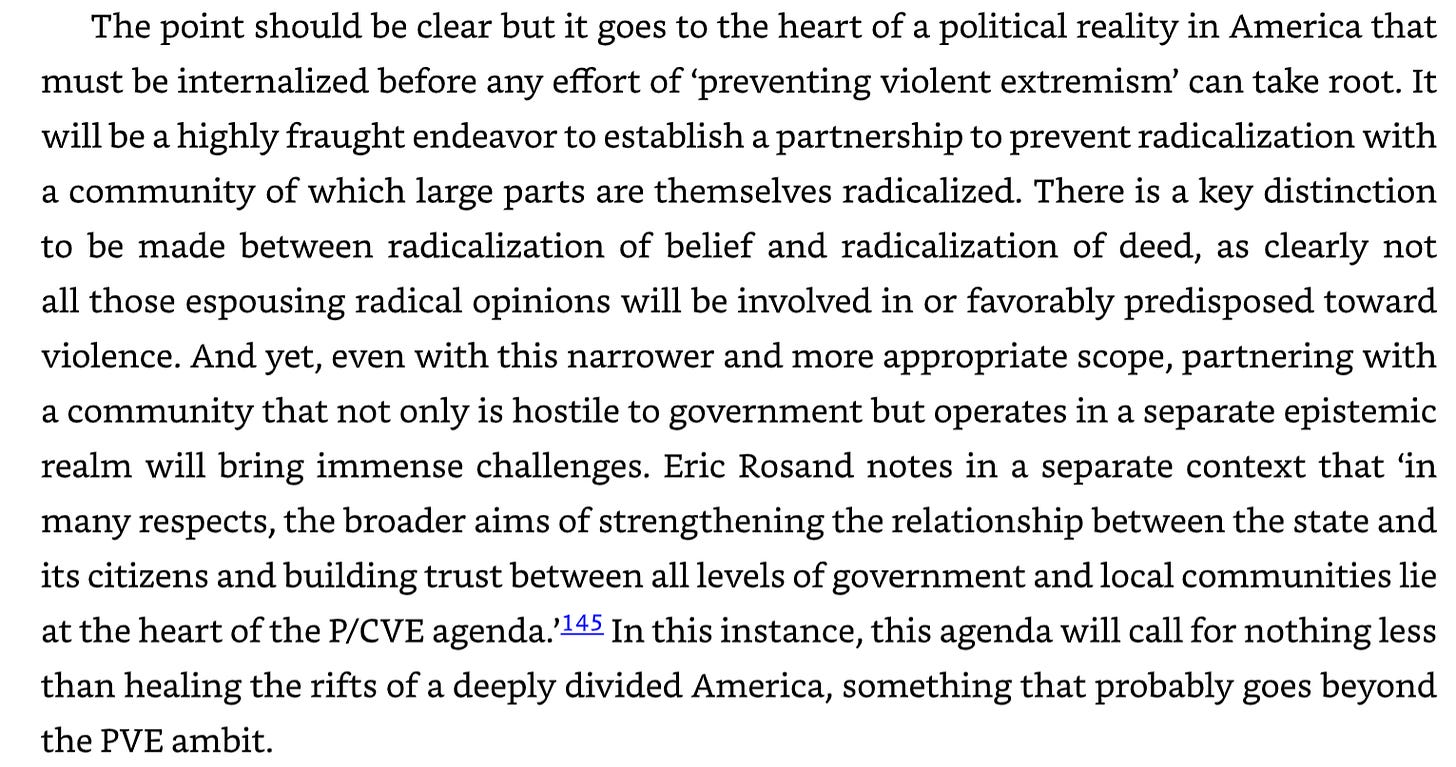Mudlark is an English word originating in the 1700s, a term used to describe those that made their way in the world by picking through the debris on the banks of the Thames at low tied. Today it’s a curious sort of archaeological hobby that requires a license from the Port of London. There are a couple of popular channels on YouTube where mudlarks share their finds.
I have a similar, albeit purely digital practice, with online conflict material. A less poetic description would be “curator”.
Attention Conservation Notice:
The only thing standing between me and being characterized as a digital hoarder is a rigorous filing system and occasionally waxing poetic about my collections. If you’re not in the mood to indulge me, then don’t.
Manifesto:
The dividing line here is akin to that between philosophers and philosophologists - the former produces novelty, the latter takes innovations and juxtaposes them for the sake of fomenting discussion. I said “akin” as it’s not exactly the best metaphor, but for the digital mudlark the origin of novelty is the effluvium left behind as the internet does what complex networks do. The dividing line between cyber-beachcombers and tourists is a mixture of instinct and a systematic approach.
There are multiple layers in effect and it all starts with web sites and the infrastructure that supports them. There are flows of events on a spectrum from peer reviewed science to social media cascades driven by conspiracy theories. Some of this ends up in RSS feeds, some is search engine accessible, other things exist on social media timelines. The last year the online world has been a bit chaotic due to the arrival of another type of network - the neural networks used for machine learning, the most visible aspect of artificial intelligence.
The creation, interpretation, and manipulation of this shared reality is big business. A recent article here, Status Labs Piñata Party, is about a company that manipulates search engine results. They’re going through some stuff now, purely due to the fact that their one dimensional worldview kept them from seeing a hazard operating at a lower level that their area of mastery.
Manifest:
I have several different classes of material that I’ve pulled from the chaos of the internet and stashed for later use in sense making exercises.
01) I recently introduced Disinfodrome, a faceted search option for my multifaceted collections of documents. Anyone who pays for a subscription here can have access to about 15,000 documents connected with the Senate Active Measures 2016 report, the Mueller investigation, and the January 6th investigation. I’ve mentioned other related stuff I have that may get added; there’s a permission to use angle to this.
02) Twitter was, prior to the Musk purchase, the whole world’s digital common. I began converting from Perl to Python in 2012, and the first backup of my Twitter streaming system dates to August of 2013. I was endlessly frustrated trying to use Splunk for handling timestamped data, and at the start of 2019 I had a chance to shift to Elasticsearch, which had both an excellent book and permissive licensing. The pinnacle of this effort came in February of 2021, when I published a full recording of the information operation that led to the January 6th Capitol Siege. The 220 million tweets and user profiles in that study are no longer active, but I could restore the ArangoDB/Elasticsearch platform that hosts them with a day or two of effort.
03) The last thing is one I talk about quite often, but I’ve never made the full corpus available. A quick search shows there are 2,500+ files with the extension mtgx or mtgl on my workstation. Those are Maltego graphs, which have been accumulating since I began paying the annual license fee in 2012. There is a degree of duplication in that count of files - I’ve been endeavoring to move them from their own dedicated folder tree into residing with other related documents. Only 417 of them have a proper YYYY-MM-DD date stamp embedded in the file name. That renaming will never be finished, as it’s demand driven. They sit until I need them, and only then would I make an attempt to date them.
Methodology:
I have often mentioned that I have a ponderous MAGA Maltego graph I have kept since the fall of 2020. There are 1,320 URLs in there, mostly stories from front line news organizations, court documents, and other grade A sources. There are precisely 3,300 names present, and you can see the rainbow of other entity types that are included.
Here is a notable example that shows the value of link analysis when applied to complex problems. Last week a “clerical error” led to the publication of 2700 text messages from the phone of Congressman Scott Perry. Here’s Alex Wagner on what a huge revelation this was. I believe that “clerical error” was a straight up strategic move to get at not just Perry, but Speaker Mike Johnson as well.
And this is what makes me think that.
Let’s enumerate the dings on Perry.
One of 34 Congressmen texting Mark Meadows on January 6th.
One of eleven Congressman in the Oval Office on December 21st.
One of nine people who’ve had their phones seized by search warrant.
One of eight Congressmen who gave a Capitol tour January 5th.
One of six Congressmen who sought a preemptive pardon.
One of four Congressmen referred for contempt prosecution.
And here’s the most damning bit of all. Perry, with Jeffrey Clark in tow, was back in the Oval Office on December 22nd. He’s the only one of eleven members present the night before who came for this second visit.
The only person more involved in the coup planning than Mark Meadows was Scott Perry.
Closer To The Action:
There are a spectrum of forces that are attempting to manipulate our collective understanding of the world. These range from Twitter ankle biters, to reputation management firms like Status Labs, to hostile foreign intelligence services. While “grifters” is the simplest explanation for the entity that is running statuslabs[.]co, it’s plausible that they are a “cutout” for something much more sinister.
Here’s a somewhat similar scenario that played out starting in 2013 and ending with this article in Mother Jones in 2017: Hackers Compromised the Trump Organization 4 Years Ago—and the Company Never Noticed. A portion of the data behind this story was anonymously dumped on pastebin and a sad little clown “analyst” picked it up and made it visible, demonstrating he had no clue IP addresses that can’t be geolocated end up with the coordinates of the centroid for the destination country. English translation: there isn’t a secret datacenter in a swamp in Siberia, that’s just the balancing point for the geographic area of Russia.
The second half was held for a couple reasons, one being the desire to speak authoritatively on the matter, should it escalate to public view. Another reason was that, right in the middle of the second half of the data points, there was a mysterious break in the otherwise methodical work. One interpretation for that break is the GRU taking it away from the spammers because it was a pivot point to gaining access to a /27 of IP addresses somewhere in the Miami area. We thought Mar-A-Lago was the most likely target, but it was impolite to probe further. I’m sanguine about this one, because I know where the problem was routed.
Conclusion:
Journalism skids a bit further each day due to the causes and conditions of the 21st century. The need for public sense making is still there, but the lack of service grounded in ethics has already led to violence, and I judge it certain that there will be more from the direction of Scott Perry & Co. as consequences escalate for them.
David Ucko, in The Insurgents Dilemma, gets right to the heart of the matter. Our democracy will not survive when a significant portion of the body politic inhabit this “separate epistemic realm”.
This latest incarnation of Infowar Irregulars Bulletin had its genesis in the August 31st post All Enemies, Foreign and Domestic, Especially Roger Stone. Similar to the attempt to get Status Labs to pay attention to what is to me an OBVIOUS hazard, there is a trail there, and unlike the Mar-A-Lago stuff, I have zero confidence anyone other than me has bothered to plumb those depths.
This is all stuff on the “operations technical” end of the field, but I hope it provides some fuel for those of you who are here for the “operations psychological” aspect of The Online Operation Kill Chain. If you can pinch off a slow drip of poison right at the source, that’s a win for society, as well as a win for you in terms of freeing up time to focus on other problems.







